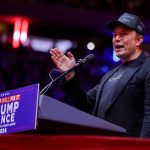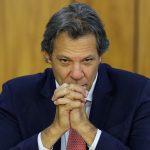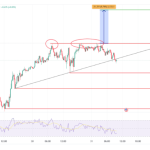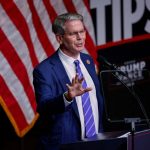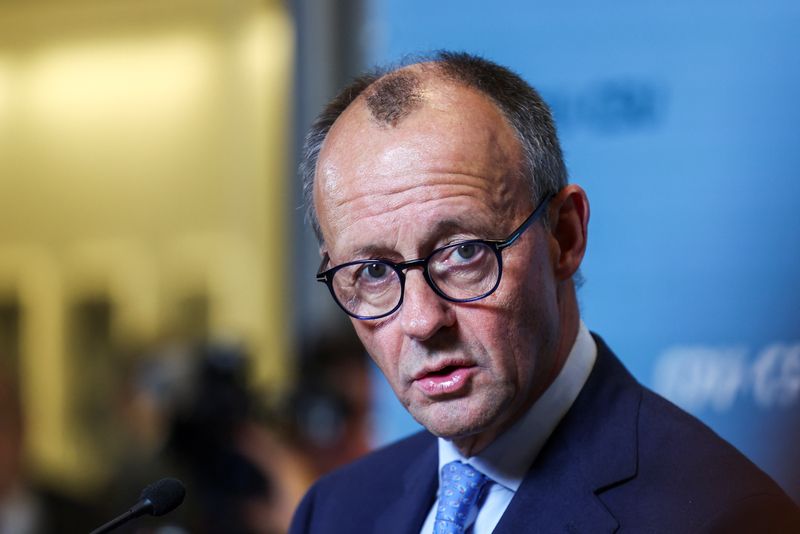
By Andreas Rinke and Maria Martinez
BERLIN (Reuters) – The leader of Germany’s conservative Christian Democrats (CDU) Friedrich Merz said he could be open to reforming the debt brake, which limits public deficit to 0.35% of gross domestic product, in certain circumstances.
Merz, who is in pole position to become the next chancellor in a federal election, had previously always said Germany should stick with the constitutionally enshrined debt brake, which was introduced by his party in 2009 under Angela Merkel.
Within the CDU, however, the debate about a debt brake reform was reopened this year by Kai Wegner, the conservative mayor of Berlin. Several powerful CDU leaders from other regional governments have joined the push for reform because the states are also constrained by the debt brake.
Pressure is building within the party, with CDU state premiers pushing Merz to include reform plans in the election programme in recent party meetings.
“Of course it can be reformed,” said Merz, at an event on Wednesday. “The question is, why? For what purpose? What is the result of such a reform?”
Merz said that, if the result was more money spent on consumption and welfare policies, he would not be open to reform.
However, if additional borrowing would boost investment and was important for progress, “then the answer may be different”, Merz added.
He noted that the debt brake was a technical issue and he did not want to get into that discussion now.
The debt brake played a part in the collapse of Germany’s coalition government that precipitated the calling of a snap election on Feb. 23.
Christian Lindner, the leader of the fiscally conservative Free Democrats party who was last week sacked as finance minister by Social Democrat Chancellor Olaf Scholz, said the chancellor had attempted to force him to suspend the debt brake.
Any change to the debt brake would require a two-thirds majority in the upper and lower houses of parliament.



